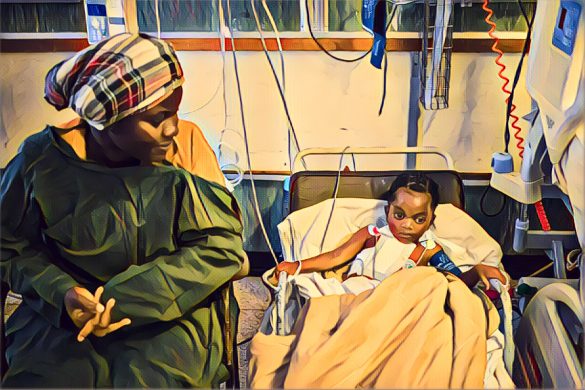KEY POINTS
- Free open-heart surgery gives hope to struggling families.
- Zimbabwe has only five heart surgeons nationwide.
- Many children die before getting needed treatment.
Tubes snaked across 3-year-old Gracious Chikova’s bandaged chest in the intensive care unit of Parirenyatwa Hospital in Harare. Just the day before, surgeons had opened her heart to repair a life-threatening defect.
Her mother, Vimbainashe Chakanungwa, earns $300 a month as a teacher enough for household basics but far from the $15,000 cost of surgery abroad. “I had given up,” she said, watching her daughter sip from a syringe. “Those with money take their children to India, but I simply couldn’t afford it.”
Shortage of heart surgeons in Zimbabwe
Gracious is one of 10 children who received free open-heart surgery in Zimbabwe in July, performed by visiting Egyptian surgeons working with local doctors. The country has just five cardiothoracic surgeons, including Dr. Kudzai Kanyepi the first and only woman in that role.
“There’s no medication that replaces surgery,” Kanyepi said. “Some children pass away without getting the help they desperately need. This is why we keep working here there’s nothing greater than helping your own people.”
A medical camp saving young lives
Zimbabwe resumed open-heart operations in 2023 after a five-year pause caused by economic crisis. Since then, 55 children have had surgery locally, with another 19 treated during two surgical camps supported by NGOs like Gift of Life International.
Globally, one in every 100 children is born with congenital heart disease the most common birth defect. In Zimbabwe, that’s about 4,500 newborns each year. Around 30 percent die in their first year without treatment, according to Dr. Simukayi Machawira, head of cardiology at the hospital.
Egyptian team brings rare opportunity for treatment
The visiting Egyptian team, led by Dr. Hesham Shawky, has run similar camps in Kenya and Uganda. “This is the only solution for many in Africa because they can’t afford private care,” he said.
In Harare’s pediatric ward, mothers hovered over their recovering children. Machines beeped, balloons floated, and the air was filled with quiet relief. For Chakanungwa, the experience was beyond words. “It’s impossible to open my heart to show my gratitude,” she said. “I thought I would lose my baby but she’s back to life.”


